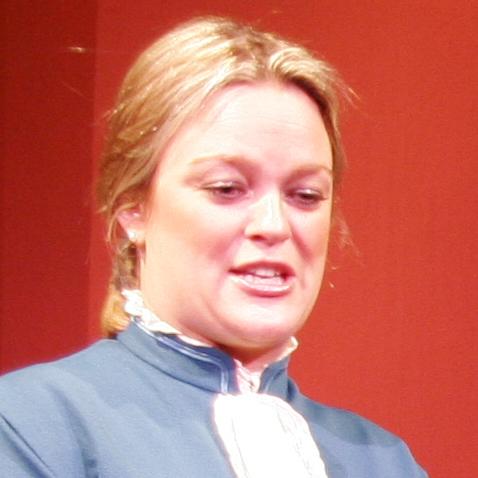
2 minute read
Elaine Tivers - Prompt Jenny Loone
Elaine Tivers - Prompt
Elaine has been a member of East Lane Theatre Club since the 1960s
Advertisement
She foundA Doll’s Housevery interesting and it was interesting to listen to the director but she
found it very difficult to prompt this particular play. Prompting requires one to know each actor’s
performance and initially they were very erratic because they did not know their lines well
enough.. It’s not only for pauses – which are marked into her script but when one is used to a
person’s performance it is easier to recognise when they have forgotten a line. Also, they did not
always pause in the same place. Part of the problem was when performances were interrupted
by the director in order to bring out the best in certain of the lines. Some of the cast felt that they
needed more straight run-throughs, letting it flow, in order to get the lines and interaction right.
This happens because of the tight schedule for rehearsals but Elaine found Linda’s intellectual
and analytical approach to the play was very interesting.
Taking part in this play, as always at East Lane, was a good experience; Elaine enjoys being with
such a stimulating group of people. She has been a member since 1966 when Judith Meredith, a
fellow teacher and membership secretary at the time, introduced her. She later had a long gap
while bringing up her children and returned about five years ago to prompt inStanley. She loves
‘the club’ but once one gets involved, it can take over one’s whole life. ‘It’s all or nothing.’ The best
thing is being part of a team.
Jenny Loomes
Jenny is used to the East Lane audition process as she has been a member for many years and
been in a number of productions. . She had prepared meticulously for the occasion and felt that
an audition is an opportunity to show what can you for a good selection of parts. She pointed
out that it is different from an audition for the professional theatre where the director selects for
each part separately from a number of applicants. In an amateur company there is a limited
pool of members and the director must select on the basis not just of who is the best fit for each
part but how the total combination will work - how they look and sound together. Of course,
everyone has to show that they can read the part. Jenny felt that the amateur theatre gave one
the opportunity to tackle parts for which one would never be considered in the professional
theatre. She said that if you put yourself forward for a part, the director has to have confidence
that you can ‘do it’ but you also have to have confidence that the director can bring the role out
of you.
On this occasion Jenny was not selected. She knows that there are several members who could
play each role and she enjoyed the audition. Generally, she prefers rehearsals to the actual
performances because of the fun of working together to get the best out of a show and the
satisfaction of seeing the play develop. An audition means selections for some and non-
selections for others. Jenny is acutely aware that she is working amongst friends and tries to
avoid any possible embarrassment by quickly congratulating (sincerely) the successful players
as she is genuinely happy for them.





